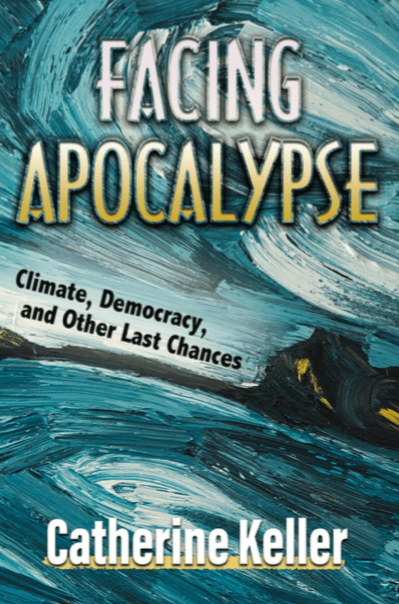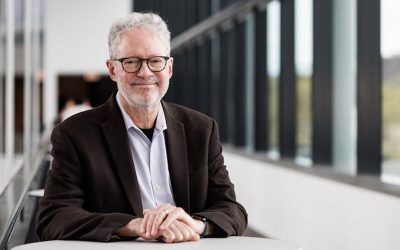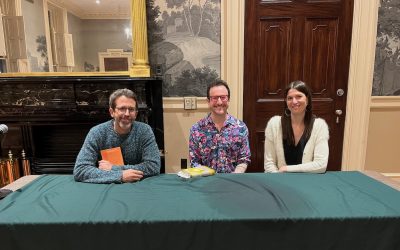A virtual event celebrating professor Catherine Keller’s newest literary success.
April 2021 – Theologians, scholars and students gathered for a virtual event to celebrate the release of Facing Apocalypse: Climate, Democracy and Other Last Chances, the latest book by Catherine Keller, George T. Cobb Professor of Constructive Theology in the Graduate Division of Religion at Drew University.
Keller, who clarified that apocalypse actually means “unveiling,” not “the end,” shared why she wrote the book with such a poignant title, “Not in our lifetimes are we going to get away from the apocalypse—from the word, the signal, the echo of an ancient text.” Facing Apocalypse acknowledges a synchronicity between our current global ecological and economic crises and John’s Apocalypse.
During the event, a panel of esteemed colleagues and theologians responded to Keller’s introduction of her book, including Tripp Fuller, postdoctoral research fellow in theology and science at The University of Edinburgh; Stephen Moore, Edmund S. Janes Professor of New Testament Studies at Drew Theological School; John J. Thatamanil, associate professor of theology and world religions at Union Theological Seminary and Carol Wayne White, presidential professor of philosophy of religion at Bucknell University. The event was moderated by Ph.D. student Dan Siedell.
“A delightfully written book,” said Moore. “A fun read despite its singularly unfunny subject matter, which merges the receding Trumpocalypse with the looming climatapocalypse.”
“Pick a page, I dare you to not find a sentence of explosive power.”
Climate change is a unique crisis in that it intersects with all other social justice and civil rights issues. “Intersectionalism unveils the extent of U.S. white supremacist exceptionalism, and at the same time challenges the single issue politics of much progressive exceptionalism,” said Keller. “The intersecionality can overwhelm, it can lose focus, it can feel impossible. And yet at the same time, it unveils the chance for solidarities broad enough, strong enough, to alter the world.”
Facing Apocalypse performs what Keller calls a dreamreading, and Fuller helps break this down by looking at the text from your past, present and future. “Rereading your past such that the web of responsibility, agency, destruction and beauty that brought you to this moment is clearer. Reading the present for dreams that wake you from a nightmare—not to engage poorly but in life-giving ways. Rereads your future and invites you into the possibility that the past doesn’t contain.”
Thatamanil hailed the book a “dizzying adventure.” Adding, “Pick a page, I dare you to not find a sentence of explosive power.” He pointed out Keller’s “urgent call for minding the apocalypse” from both the secularist left and the fundamentalist right point of views. “Rhetorics of apocalypse poorly understood plagues both camps.”
“This ecopolitical practice that Catherine invites us to is a novel practice of becoming other than we have been,” said White, who called the book “capacious” and “both beautiful and terrifying.”
Keller’s other books include Apocalypse Now and Then, God and Power, Face of the Deep: A Theology of Becoming, Cloud of the Impossible: Negative Theology and Planetary Entanglement, On the Mystery and most recently Political Theology of the Earth: Our Planetary Emergency and the Struggle for a New Public.
“The possibilities do sparkle in the darkness of improbability,” said Keller, offering a cautious hope for the future. “Some chances may be last chances—but they are real chances.” Check out the insightful discussion below.




